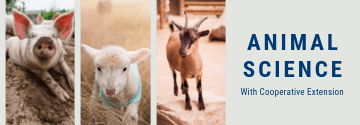Zoetis Inc. (NYSE:ZTS) today announced that the U.S. Department of Agriculture (USDA) has granted a conditional license for a vaccine to help fight porcine epidemic diarrhea virus (PEDv) in pigs. The two-dose inactivated vaccine, licensed for use in healthy pregnant female pigs (sows and gilts), is designed to help them develop antibodies which can be transmitted to their newborn piglets. Zoetis anticipates the vaccine will be available to veterinarians and pig farmers in September.
“We at Zoetis are proud to provide our customers with a vaccine to help battle this devastating disease,” said Catherine Knupp, executive vice president and president, Zoetis Research and Development. “Rapidly emerging infectious diseases such as PEDv not only threaten animal health but also the livelihoods of farmers. Bringing this vaccine to market quickly – in a little more than a year since the disease was identified in the U.S. – exemplifies our commitment to supporting veterinarians and livestock producers with high-quality vaccines to rapidly respond to and help control the evolving and complex threat of emerging infectious diseases.”
The vaccine is given as a 2 mL intramuscular (IM) injection to sows or gilts prior to farrowing (giving birth). Two doses given three weeks apart are recommended, with the second dose given two weeks pre-farrowing. Previously vaccinated sows should receive a single dose given two weeks before farrowing. On average, female pigs farrow twice each year.
In order to receive the conditional license, the vaccine was shown to be safe in a field safety study, and a reasonable expectation of efficacy was demonstrated. Zoetis is working to complete the studies necessary to obtain full licensure in the U.S.
“This vaccine is an important part of our commitment to working with veterinarians and pig farmers to help minimize the impact of PEDv on pigs in their care,” said Gloria Basse, vice president, U.S. Pork Business Unit, Zoetis. “To achieve the best possible results, farmers should work closely with their veterinarians and Zoetis technical services team to implement the new vaccine into their biosecurity programs.”
PEDv was first diagnosed in the United States in April 2013.1 Since then, it has spread to 30 states and is responsible for more than seven million deaths in piglets.2 There are approximately 5.85 million sows and gilts in the U.S.3; however, the exact number of those infected is not known. The USDA designated PEDv a reportable disease in June 20142, and it continues to be a serious threat to U.S. pig farms with an estimated 30 percent of farms reporting a recurrence of the disease within a year after an initial outbreak.4 Although PEDv is a significant health threat to young piglets, it poses no risk to food safety or to human health.
Zoetis continues work with Iowa State University on a second vaccine approach to help control PEDv. The results from these vaccine research programs could have applicability in countries outside the U.S. where PEDv has been identified and is threatening swine herds and the livelihoods of farmers who raise and care for them.
In the meantime, ongoing efforts to slow the spread of PEDv continue to focus on improving animal husbandry and hygiene measures. From the farm to transport trucks, stepped-up efforts include additional sanitation, better control of access points and review of employee protocols. All of these steps have been demonstrated to help mitigate the risk of the virus entering a farm.
For more information about the new vaccine, veterinarians and pig farmers should contact their Zoetis representative or visit www.zoetispork.com/pedv. For more information about PEDv, visit www.aasv.org and www.pork.org.
Source: Zoetis Press Release September 3, 2014 http://news.zoetis.com/press-release/manufacturing/zoetis-granted-conditional-license-porcine-epidemic-diarrhea-vaccine

